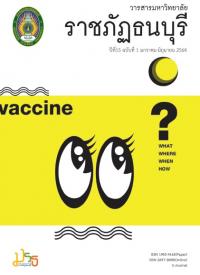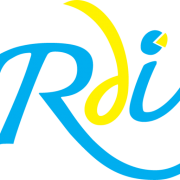The Study of School Readiness in Development for Thailand’s Education 4.0: Case of Trang Primary Educational Service Area Office
Keywords:
school readiness, Thailand's education 4.0, primary educational service area officeAbstract
The purposes of this study were 1) to assess the school readiness in development for Thailand's education 4.0, and 2) to compare the school readiness in development for Thailand's education 4.0 under the responsibility of Trang Primary Educational Service Area Office. This study was quantitative research. The sample was composed of a total of 1,150 persons who were drawn from school directors, teachers, students and parents under the responsibility of Trang Primary Educational Service Area Office. The researchers used multi-stage random sampling. The data was collected by using questionnaires. The results revealed that: 1) in overall, the school readiness in development for Thailand's education 4.0 under the responsibility of Trang Primary Educational Service Area Office was at a high level ( x̄= 3.96). When considering each aspect, it was found that the most ready aspect was the impact, followed by the input, the context, the process and the effectiveness, respectively, and 2) the comparison of the school readiness of school directors, teachers, students and parents revealed that the school directors with different genders had different opinions on the overall school readiness and on almost all aspects with statistical significance at 0.05 and 0.01 levels, excluding the effectiveness aspect. The teachers with different working experiences had different opinions on the overall school readiness, as well as on the context and the impact aspects with statistical significance at 0.05. The students with different genders had different opinions on the school readiness in effectiveness aspect, and those with different grades had different opinions on the school readiness in aspects of the context, the input, and the process with statistical significance at 0.05. Different educational service areas also showed different school readiness in overall, as well as in all aspects with statistical significance at 0.01. Furthermore, different school sizes (large, medium, and small) resulted in the school readiness in aspects of the context and the process differently with statistical significance at 0.05.
Downloads
References
กรมส่งเสริมการปกครองท้องถิ่น. (2563). ข้อมูลรายได้ขององค์กรปกครองส่วนท้องถิ่น ประจำปีงบประมาณ 2561 และ 2562. ค้นเมื่อ 14 พฤษภาคม 2563. จาก http://www.dla.go.th/work/money/index.jsp.
กองบริหารงานวิจัยและประกันคุณภาพการศึกษา สำนักงานพัฒนาวิทยาศาสตร์และเทคโนโลยีแห่งชาติ. (2560). Thailand 4.0 โมเดลขับเคลื่อนประเทศไทยสู่ความมั่งคั่ง มั่นคง และยั่งยืน. ค้นเมื่อ 14 พฤษภาคม 2563. จาก https://www.nstda.or.th.
ทิศนา แขมมณี. (2560). ศาสตร์การสอน : องค์ความรู้เพื่อการจัดกระบวนการเรียนรู้ที่มีประสิทธิภาพ. พิมพ์ครั้งที่ 21. กรุงเทพมหานคร : สำนักพิมพ์แห่งจุฬาลงกรณ์มหาวิทยาลัย.
ธีราภรณ์ ผลกอง. (2558). ความพร้อมการเข้าสู่ประชาคมอาเซียนของครูในโรงเรียนมัธยมศึกษา สังกัดสำนักงานเขตพื้นที่การศึกษามัธยมศึกษาเขต 1. วิทยานิพนธ์ปริญญาศึกษาศาสตร มหาบัณฑิต สาขาการจัดการการศึกษา วิทยาลัยครุศาสตร์ มหาวิทยาลัยธุรกิจบัณฑิตย์.
นิกร จันภิลม, และศตพล กัลยา. (2562). เทคโนโลยีการศึกษาในยุค Thailand 4.0. วารสารปัญญาภิวัฒน์, 11(21), หน้า 304-314.
ผ่องพรรณ พลราช, และเกริกไกร แก้วล้วน. (2560). ภาวะผู้นำของผู้บริหารสถานศึกษาในศตวรรษที่ 21 สังกัดสานักงานเขตพื้นที่การศึกษามัธยมศึกษา เขต 29. วารสารราชธานีนวัตกรรมทางสังคมศาสตร์, 1(1), หน้า 27-40.
พาสนา จุลรัตน์. (2561). การจัดการเรียนรู้สำหรับผู้เรียนในยุคThailand 4.0. วารสารอิเล็กทรอนิกส์ วิริเดียน มหาวิทยาลัยศิลปากร, 11(2), หน้า 1-18.
วีระพงษ์ ก้านกิ่ง, และชวนคิด มะเสนะ. (2560). สภาพและปัญหาการบริหารงบประมาณขอสถานศึกษาขั้นพื้นฐาน สังกัดสำนักงานเขตพื้นที่การศึกษามัธยมศึกษา เขต 29. วารสารราชธานีนวัตกรรม ทางสังคมศาสตร์, 1(1), หน้า 41-58.
สถาบันส่งเสริมการสอนวิทยาศาสตร์และเทคโนโลยี กระทรวงศึกษาธิการ. (2560). สรุปข้อมูลเบื้องต้น PISA 2015. กรุงเทพมหานคร : กระทรวงศึกษาธิการ.
สุบัน มุขธระโกษา, และศศิรดา แพงไทย. (2562). ความเป็นมืออาชีพของผู้บริหารสถานศึกษายุคไทยแลนด์ 4.0. วารสารวิชาการ สถาบันเทคโนโลยีแห่งสุวรรณภูมิ, 10(1), หน้า 454-461.
สุวิมล มธุรส, และกิตติ รัตนราษ. (2562). การศึกษาไทย 4.0 ในบริบทของผู้บริหารสถานศึกษา. วารสาร วิทยาลัยสงฆ์นครลำปาง, 8(2), หน้า 1-16.
สำนักงานคณะกรรมการการศึกษาขั้นพื้นฐาน. (2562). แผนปฏิบัติการประจำปี 2543-2547. กรุงเทพมหานคร : สำนักงานคณะกรรมการการศึกษาขั้นพื้นฐาน กระทรวงศึกษาธิการ.
สำนักงานเลขาธิการสภาการศึกษา กระทรวงศึกษาธิการ. (2560). การจัดสรรงบประมาณเพื่อการศึกษา ผ่านตัวผู้เรียน. รายงานการวิจัย สำนักงานศูนย์วิจัยและให้คำปรึกษาแห่งมหาวิทยาลัยธรรมศาสตร์.
สำนักงานสภาพัฒนาการเศรษฐกิจและสังคมแห่งชาติ. (2563). ยุทธศาสตร์ชาติ 20 ปี. ค้นเมื่อ 14 พฤษภาคม 2563. จาก http://nscr.nesdb.go.th.
อภิภา ปรัชญพฤทธิ์. (2561). การพัฒนารูปแบบการผลิตครูเพื่อรองรับการศึกษายุค 4.0. วารสารราชพฤกษ์, 35(3), หน้า 102-136.
อริยา พรหมสุภา. (2562). “บวร” บ้าน วัด โรงเรียน องค์การแห่งการเรียนรู้ในชุมชน : ชุมชนโป่งคำ จังหวัดน่าน และชุมชนแจ่มหลวง จังหวัดเชียงใหม่. วิทยานิพนธ์ปริญญาศิลปศาสตรมหาบัณฑิต สาขาการจัดการ บัณฑิตวิทยาลัย มหาวิทยาลัยเทคโนโลยีพระจอมเกล้าธนบุรี.
องค์การยูนิเซฟ. (2560). MICS : ข้อมูลที่น่าสนใจจากการสำรวจสถานการณ์เด็กและสตรีในประเทศไทย พ.ศ. 2558-2559. กรุงเทพมหานคร : องค์การยูนิเซฟ.
Driessen, G. (2019). Are the Early Childhood Education claims valid?. Encyclopedia publishing, 267 (1), pp. 15-21.
Hoy, W. K. & Hannum, J. & Tschannen-Moran, M. (1998). Organizational Climate and Student Achievement: A Parsimonious and Longitudinal View. Journal of school leadership, 8 (2), pp. 336-359.
Magnuson, K. A., Meyers, M. K., Ruhm, Christopher J. & Waldfogel, J. (2004). Inequality in children’s school readiness and public funding. American Educational Research Journal, 41 (1), pp. 115-157.
Munnik, E. & Smith M. (2019). Contextualising school readiness in South Africa: Stakeholders’ perspectives. South African Journal of Childhood Education, pp. 1-13.
Naik, P. K. & Mani, S U. (2018). Impact of organizational climate on academic, professional and social dimensions of teacher effectiveness of secondary schools: A study. International Journal of Multidisciplinary Education and Research, 3(3), pp. 52-56.
Tubbs, J. E. & Garner, M. (2008). The Impact of school climate on school outcomes. Journal of College Teaching & Learning, 5(9), pp. 17-26.
Downloads
Published
How to Cite
Issue
Section
License
Copyright (c) 2021 Dhonburi Rajabhat University

This work is licensed under a Creative Commons Attribution-NonCommercial-NoDerivatives 4.0 International License.
บทความที่ได้รับการตีพิมพ์เป็นลิขสิทธิ์ของ มหาวิทยาลัยราชภัฏธนบุรี
ข้อความที่ปรากฏในบทความแต่ละเรื่องในวารสารวิชาการเล่มนี้เป็นความคิดเห็นส่วนตัวของผู้เขียนแต่ละท่านไม่เกี่ยวข้องกับมหาวิทยาลัยราชภัฏธนบุรีและบุคลากรท่านอื่นๆในมหาวิทยาลัยฯ แต่อย่างใด ความรับผิดชอบองค์ประกอบทั้งหมดของบทความแต่ละเรื่องเป็นของผู้เขียนแต่ละท่าน หากมีความผิดพลาดใดๆ ผู้เขียนแต่ละท่านจะรับผิดชอบบทความของตนเองแต่ผู้เดียว







